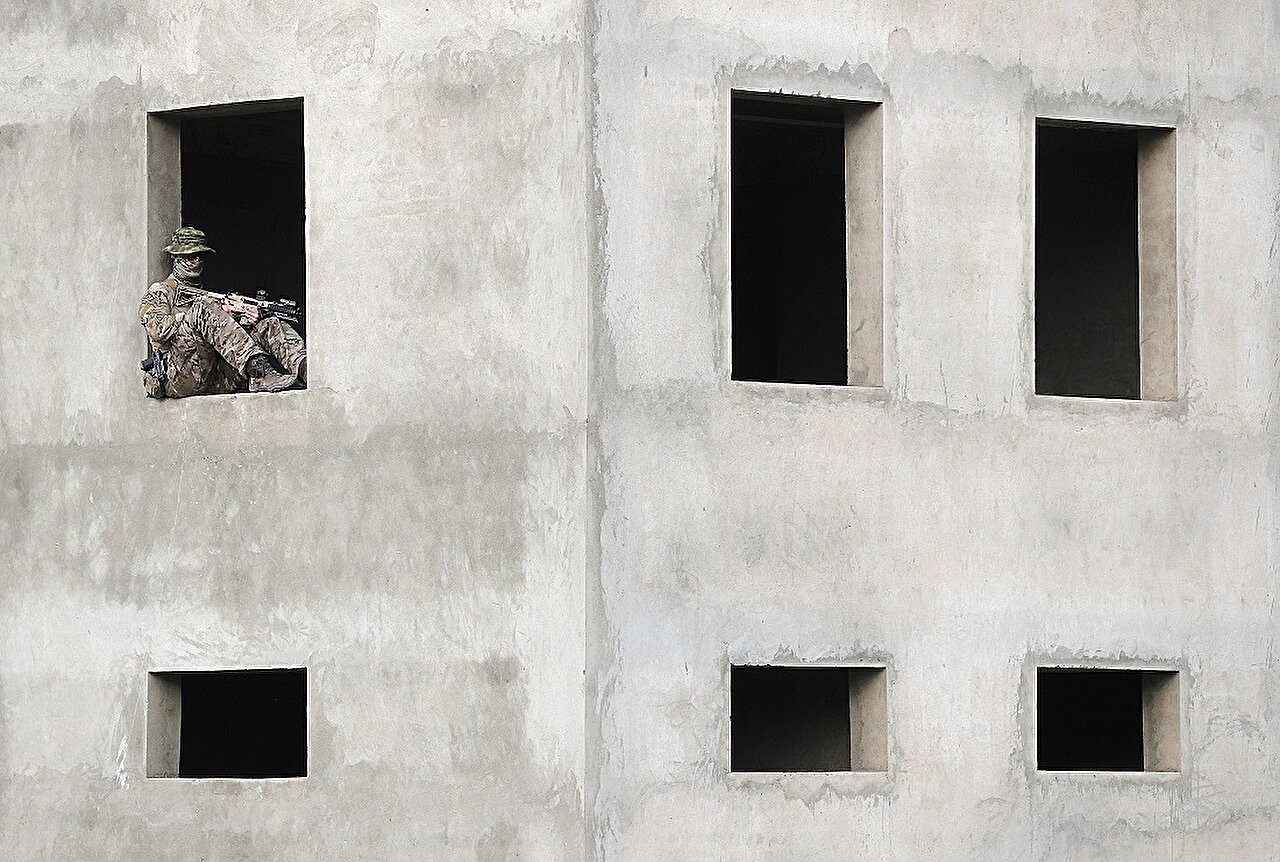
From 2001 to 2021, about 9,200 Norwegian soldiers served in Afghanistan. The vast majority of them have managed well in the years that have followed. According to a new survey conducted by the Norwegian Armed Forces Joint Medical Services, however, a significant number of veterans struggle with mental health issues.
“All Norwegian veterans who served in Afghanistan were invited to participate in a large health survey in 2020,” says Associate Professor Andreas Espetvedt Nordstrand at NTNU’s Department of Psychology. He is also a senior researcher and a lieutenant commander in the Norwegian Armed Forces.
Veterans tend to be highly disciplined people, so it isn’t a surprise that the response rate was so high, with 6205, or 68%, responding to the survey. This means that the results are credible and likely to be representative for the entire veteran population.
“One topic in this survey was ‘problematic anger,'” says Associate Professor Nordstrand.
The results are published in the journal BMC Psychology.
More anger than PTSD
Only in recent years has “problematic anger” become an important part of research regarding veterans and trauma. Researchers have often chosen to concentrate on Post-Traumatic Stress Disorder (PTSD).
“Over the years, we have understood that PTSD is just one of several possible trauma-related mental disorders,” says Nordstrand.
PTSD is a so-called “fear dysregulation disorder.” It is often a consequence of exposure to life-threatening events.
“In recent years, we have seen that factors other than fear often contribute to health problems among veterans. These factors include witnessing suffering or death in others, or exposure to serious moral transgressions. Trauma-related disorders can manifest in various ways beyond just fear dysregulation. For example, they can trigger alcohol problems, depression or insomnia,” says Nordstrand.
Studying anger for the first time
Trauma research has rarely addressed the connection between trauma exposure and anger issues. Nordstand believes the reason for this is probably that researchers have concentrated on fear dysregulation instead.
“No one has studied anger among Nordic veterans before. Anger among veterans has received little attention internationally too, and leading military psychology researchers have gone so far as to call anger ‘the forgotten emotion’ in veteran research.
“Anger issues, also referred to as ‘problematic anger,’ occur when a person becomes so frequently, intensely, and persistently angry that it significantly disrupts their functioning, social life, and quality of life. So this is a problem we must take seriously,” Nordstrand said.
High numbers
The researchers used a standard instrument to measure anger—the Dimensions of Anger Reactions Scale (DAR-5). They consider it a useful tool for identifying clinical anger problems, i.e. problems so severe that individuals require treatment.
Among the many findings are the following:
- 8.4% of Norwegian Afghanistan veterans have clinical anger problems, i.e., problematic anger. This makes anger by far the largest single mental health problem among these veterans.
- Anger problems are about three times as common as classic PTSD, which affects 2.9% of these veterans.
- The second most common mental health problem is insomnia, which affects 5.1% of the veterans.
It is clear from these findings that mental health problems are quite common among veterans.
“If we combine all types of mental illness, 10.4% of all Afghanistan veterans suffer from mental health problems—without including problematic anger, meaning we have potentially underestimated how many veterans are struggling with mental health problems after serving in Afghanistan,” says Nordstrand.
In other words, anger problems are in addition to everything else.
“The veterans who struggle with problematic anger often have several other mental health problems as well,” Nordstrand adds.
Some of the most resilient people to begin with
The numbers are particularly high when we take into consideration the fact that these veterans were handpicked to serve in Afghanistan because they can withstand more than most people.
“We need to remember that all Afghanistan veterans have undergone multiple rounds of medical and psychological selection, so they are presumed to represent the healthiest segment of the Norwegian population,” Nordstrand points out.
In other words, it takes a lot before these people start to struggle. While they are generally more resilient than the average person, many nevertheless struggle because the pressure becomes so overwhelming.
“Problematic anger is closely associated with feeling guilt and shame related to things you saw or did during overseas service,” says Nordstrand.
Problematic anger is also closely associated with having chronic pain problems after serving in Afghanistan.
“This means that we probably need to adopt a more holistic approach to treating veterans who are struggling than previously. Anger and chronic pain can quickly lead to a vicious circle where these two issues mutually exacerbate each other,” says Nordstrand.
People who leave the military struggle the most
“We also see that people who leave the Armed Forces after having served in Afghanistan are much more likely to develop anger problems than people who continue to serve,” says Nordstrand.
However, staying in touch with their former employer seems to help.
“For the individuals who leave the military, maintaining a connection to the Armed Forces, such as through service in the Home Guard, provides nearly the same level of protection against anger issues as continuing active duty.
“We need to be very cautious about assuming cause and effect here, but previous veteran research indicates that the transition from military to civilian life is a vulnerable phase for veterans.
“As civilians, veterans lose the social identity of being a soldier or officer, and this identity often provides significant protection when dealing with military trauma. In addition, many veterans feel alienated from civilians as they attempt to reintegrate into civilian life,” says Nordstrand.
The Norwegian Armed Forces needs veterans
This is often a bigger problem for people who have had many difficult experiences during their overseas service.
“Our findings must be interpreted in the context of this knowledge, and be applied to suggest possible ways to prevent anger problems. Perhaps it is a good idea to remain in the military for a while after completing overseas service. If they don’t have the opportunity to do so, the new findings show that service in the Home Guard can be a good option.
“The Norwegian Armed Forces always needs experienced people to serve in the Home Guard, so this could be a win-win solution,” says Nordstrand.
The researchers added that further studies should address problematic anger over time, ways to prevent such problems from escalating, and problematic anger in other high-risk professions.
More information:
Andreas Espetvedt Nordstrand et al, Problematic anger among military personnel after combat deployment: prevalence and risk factors, BMC Psychology (2024). DOI: 10.1186/s40359-024-01955-8
Citation:
Study: For Afghanistan veterans, anger, not PTSD, is the main problem (2024, September 12)
retrieved 13 September 2024
from https://medicalxpress.com/news/2024-09-afghanistan-veterans-anger-ptsd-main.html
This document is subject to copyright. Apart from any fair dealing for the purpose of private study or research, no
part may be reproduced without the written permission. The content is provided for information purposes only.


